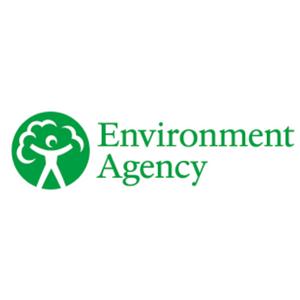 Kickstarting the World Water-Tech Innovation Summit in London, Sir James Bevan, Chief Executive, Environment Agency sets the scene in his keynote address ‘Water: Myths, Facts and Inconvenient Truths’
Kickstarting the World Water-Tech Innovation Summit in London, Sir James Bevan, Chief Executive, Environment Agency sets the scene in his keynote address ‘Water: Myths, Facts and Inconvenient Truths’
In his enlightening speech at the World Water-Tech innovation summit on February 22, Sir James Bevan addressed the most pressing considerations in the global water sector, including water quality, water resources, and the climate emergency. Focusing on ‘setting the record straight’, he busted myths about the water industry and corroborated them with ‘facts and inconvenient truths’.
Watch the keynote speech or read the full transcript below:
He starts with three common myths, in recent parlance, about water:
Myth 1: “all our waters are in a terrible state.”
Eloquently, Sir Bevan delivers the good news with the bad. The bad news being our waters are nowhere near the condition we want. The state of our rivers is flatlining. Only 14% of them currently meet the criteria for good ecological status, and that number has stayed stubbornly the same for the last several years. We are still seeing too much pollution from sources we have known about for years: sewage, farming, industry and road-run off. Meanwhile new threats are seeping into our waters, including microplastics and so-called forever chemicals.
However, he assures the crowd with the good news that there are now far fewer serious pollution incidents damaging our waters than three decades ago. In 2020, the number of serious incidents caused by the water companies reached the lowest number ever – 44. Sewage treatment works are now discharging much lower amounts of harmful chemicals into our rivers: 67% less phosphorus and 79% less ammonia than in 1995. The bathing waters around our coasts are in much better condition than they were. In 2021 99% of the 400-plus bathing waters in England met or exceeded the required standards. Biodiversity in many of our rivers is a lot better than it was. In 2019 76% were at good status for invertebrates, which are a critical part of the food chain for thriving river wildlife.
Myth 2: “the state of our rivers is the Environment Agency’s fault.”
He acknowledges the responsibility of the Environment Agency as well as the importance of constructive critique by saying, ” It is true that as the environmental regulator it’s the Environment Agency’s job to protect our waters, that we don’t always succeed, that we should listen to criticism (we do), and that while we have a strong track record we should – like all good organisations – always be seeking to do better.”
He also states that it is the collective responsibility of all stakeholders, including the utilities, the campaigners nd most importantly the public, “But our ability to protect our waters depends on us having the powers and resources to do that, and that hasn’t always been the case… I agree with Ofwat that water company chief executives should have their pay linked to levels of pollution their companies cause.”
Myth 3: “the biggest problem we have is water quality”
“While water quality is an important issue, the focus should also be directed towards water quantity,” Sir Bevan explains, “This is about avoiding what I have called The Jaws of Death: the point on water companies’ planning charts some 20 years from now when if we don’t intervene, the demand for water in this country will outstrip supply…we know how to avoid the jaws of death: reduce demand by using less water more efficiently; and improve supply, including by investing in the right infrastructure because while good water quality is essential, the right water quantity is existential.”
He then turns towards highlighting three little known facts about water:
Fact 1: Water is far more precious than we think
He states that water is precious not just because it’s relatively scarce but because it’s also fragile. The water that nurtures us humans, wildlife and plants is very easily damaged and that damage can last for a long time.The Environment Agency is examining the new risks now posed to our waters, and to human and animal health, by so called forever chemicals, or PFAS (perfluorinated and polyfluorinated alkyl substances). These were used for decades in products like non-stick pans, outdoor clothing and fire-fighting foams and are now ubiquitous in waters around the world.
Fact 2: Farming is doing as much damage to our waters as sewage
Busting a common notion about pollution, he reveals that the water companies are not actually the main source of pollution for most of our rivers and streams but farming and rural land management impacts a higher proportion of our water bodies – 45% – than any other source, mostly through diffuse pollution. He also states that the wider food and agricultural sector needs to raise its game too. Farming is the only profession where all the responsibility for getting the multiple technical, competing demands right falls on the individual farmer’s shoulders alone. There are few if any duties on the agriculture industry and wider food supply chain to require minimum standards for farmers’ impact on the natural world.
Fact number 3: the EA does a lot more than you think to protect water
Demonstrating the various roles, responsibilities and actions that Environment Agency takes, Sir Bevan says,”We do a lot of other things beyond regulation to protect and enhance water. We work with the government to develop policy that will enhance water quality. We work with the water companies and Ofwat to ensure that the water companies are investing in better infrastructure to improve water quality in future. We also respond to thousands of environmental incidents every year and work with NGOs and local partners to improve water habitats, remove invasive species, open up rivers for salmon, restock them with fish for anglers, and restore them to their natural state. We regulate water abstraction to protect chalk streams and aquifers, and manage drought risk as well as the Thames and other major river navigations for the benefit of river users, the water companies who abstract water for public supply, and wildlife. I know most of the Environment Agency staff who do these things. Every single one of them is committed to creating a better place.”
He, finally, talks about to highlight three inconvenient truths:
Inconvenient Truth number 1: You get the environment you pay for
Stressing on the importance of taxation and sanctions, he highlights,”The first people who should be paying to protect and enhance our waters are the polluters themselves. At the moment they aren’t. We welcome the government’s recent agreement to increase the charges we apply for some of the abstraction licences we issue. Those are designed to stop water companies and others taking unsustainable amounts of water from the ground or our rivers. When we prosecute serious polluters, the fines that are imposed on them go to the Treasury, not back into restoring the environment. We’d like to see higher penalties than in the past, because the biggest polluters are not yet paying enough in fines to really deter them and others from future offences.”
Inconvenient Truth 2: climate change may make things worse before they get better
“Over the long term though the biggest determinant of the state of our waters won’t be what the Environment Agency or the government or the water companies do but what happens to our climate, Sir Bevan attests, “The Environment Agency is playing its part here too, by regulating down the emissions of greenhouse gas that cause climate change, by helping our communities adapt to its effects through building more flood defences and working with the planners to create more resilient cities, and by walking the walk ourselves with our own commitment to make the EA a net zero carbon emitter by 2030.”
Inconvenient Truth 3: if we want better outcomes, we need to think differently
Herein, he talks about two potential ideas that could work out in producing better outcomes in water conservation, “One idea, put forward recently by Parliament’s Environmental Audit Committee, is to build a network of citizen scientists to help monitor our rivers and inform the action we take to protect them. I like the principle it embodies: that all of us are responsible for the state of our waters. I like the practical benefits it could deliver: better understanding, in real time, of what’s happening in our rivers allowing us to act better and faster. So we are looking at whether we could do something on those lines, and I invite all the campaigners and NGOs to consider how you can contribute – we are keen to work with you.”
Talking about the second idea, he says, “Another idea that I like: energy from mine water. 25% of homes in the UK are located above former coal mines. The water in those mines is warmed by natural processes and is not affected by seasonal variations. With the right technology it can provide renewable, secure, low carbon heating for buildings in coalfield areas, benefiting local communities and helping tackle climate change.”
He concludes his speech by stating that he state of our waters is complicated: in the last thirty years we have seen some great improvements but there is still a lot to do and new threats to meet. However, instead of feeling downhearted, we should focus on the various solutions and inducing better results.

 CLOSE
CLOSE








